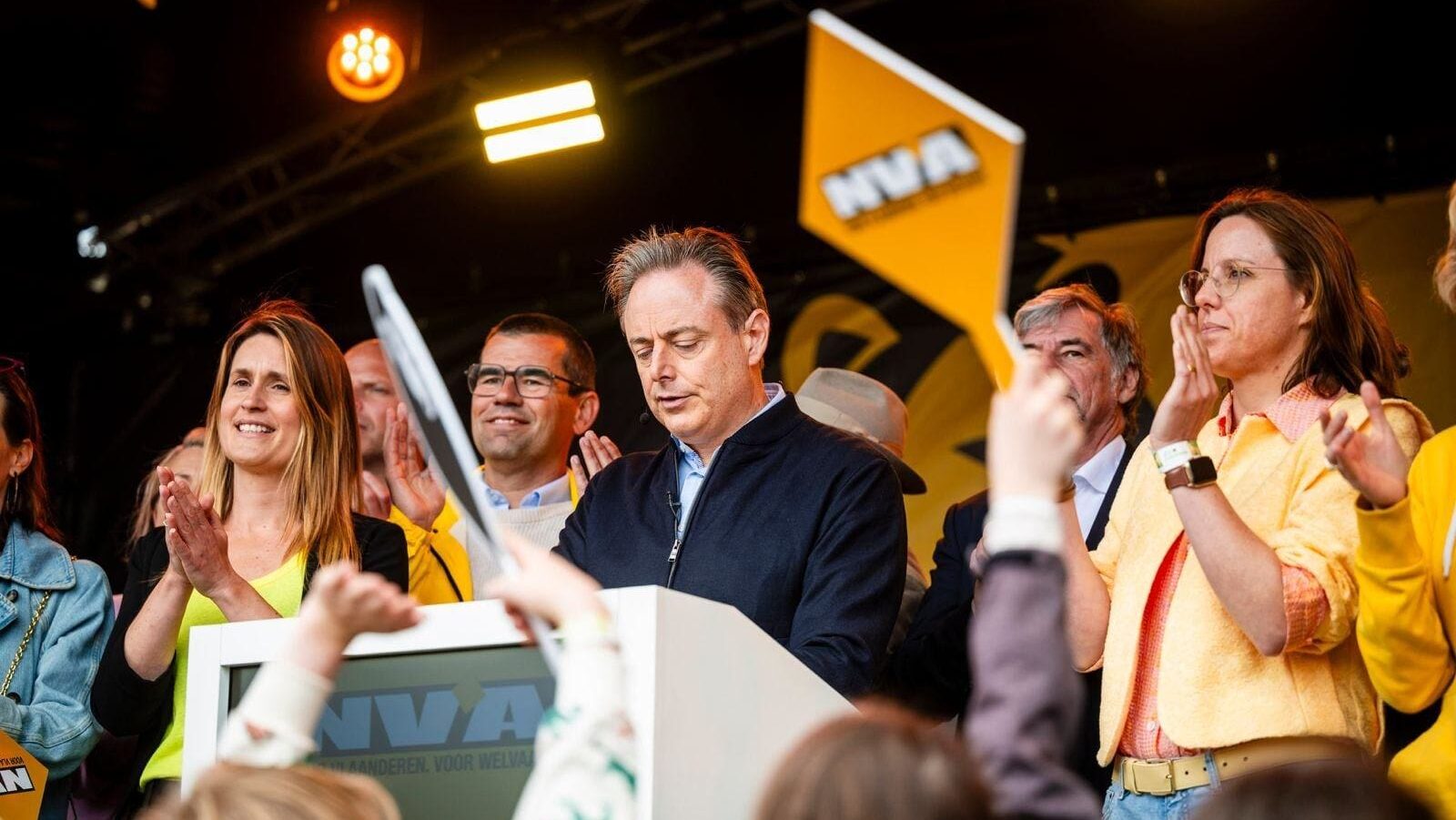
Bart De Wever at an N-VA campaign event, June 2, 2024.
Photo: Bart de Wever on Facebook, 2 June 2024
Belgian politics witnessed a seachange last night after voters went to the ballot box to elect new regional and federal parliaments, in addition to selecting their representatives in the European parliament.
“Friends, we have won these elections,” man of the hour, center-right nationalist N-VA leader Bart De Wever told jubilant supporters. “And admit it: you didn’t expect that. The polls were bad, the comments in the press were damning, but you never gave up.”
On both the regional and federal level, Flemish nationalist parties dominated, while the francophone side of the country—which traditionally leans left—saw the meteoric rise of the liberal-conservative Mouvement Reformateur party and the center-right Christian Democrats, while the socialist Parti Socialiste and the Greens had to swallow serious losses.
For liberals in the Dutch-speaking part of the country, things looked markedly different, as Prime minister Alexander De Croo’s Open VLD party experienced a crushing defeat, leading its chairman, Tom Ongena, to resign.
Later on Monday, the full board of Open VLD announced its resignation, after which they would be looking for a new chairman and board. “The plan is to be ready with that by the end of the summer,” Ongena told media.
The party, long a fixture within any coalition government on both the regional and federal level, now finds itself in the opposition. This loss is mainly a reflection of the Belgians’ substantial discontent with the ruling Vivaldi coalition government, in which sit the liberals (Open VLD and MR), the socialists (Vooruit and PS), the Greens (Groen and Ecolo), and the Christian Democrats (CD&V).
“This is a very difficult evening for us, we have lost,” De Croo said to supporters and militants, adding he would take full responsibility for the loss. “Starting tomorrow I will be the outgoing prime minister. But we liberals are strong, and we will be back.”
Despite polls predicting that the pro-independence, anti-immigration Vlaams Belang party would become the country’s largest political force, the right-wing nationalist Nieuw-Vlaamse Alliante (N-VA) retained its first spot in the regional elections, securing 23.9% of the vote, closely followed by Vlaams Belang’s 22.7%, which increased its share by 4.2% compared to the 2019 elections.
As a result, in the Flemish Parliament, as many as half of all seats now go to the two Flemish nationalist parties while, in most Flemish counties, either one of the two is the largest party, which is unprecedented.
On the federal level, where both Dutch-speaking and Francophone parties compete for votes, the two Flemish nationalist parties also top the rankings (N-VA 16.7%, Vlaams Belang 13.8%).
Over at Vlaams Belang, which nonetheless could report the largest gains overall (having even managed to secure over 1 million votes for the European Parliament, making it the largest nation-wide on that level) the mood was one of slight disappointment yet also of resolve.
Party leader Tom Van Grieken told supporters that Flanders had “never voted as right-wing and as Flemish as it did now, for which it has my thanks. Vivaldi has been mercilessly punished and there is a Flemish majority. Congratulations to N-VA and Bart De Wever. Let’s seize this moment to work together.”
Yet despite the extended hand given by Vlaams Belang, de Wever is unlikely to accept the offer. On multiple occasions, he has pledged never to enter into an alliance with Vlaams Belang.
Government formations tend to take a long time in Belgium—it currently holds the world record, taking 541 days in 2010-2011.
